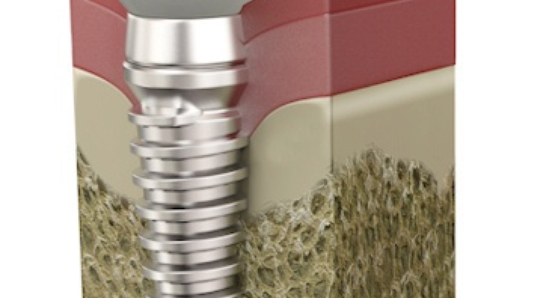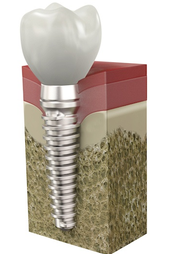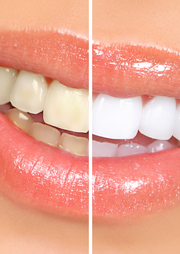A dental implant, scientifically called osseointegrated implant, is an artificial root made of titanium. Titanium is completely biocompatible and it bonds to the bone. Depending on the individual case, implants can replace a single tooth or even the entire dental arch or act as anchor points for removable prostheses. Once healing is complete (“osseointegration” of the implant), the implant (which is invisible in the mouth) is provided with an abutment, used to support fixed or removable prostheses (contributing to their stability).
Implantology has now become a standardised procedure without high risk of failure. Nonetheless, it is a choice to be made with care, keeping in mind that not all situations are suitable for implants due to general problems (osteoporosis, cardiac conditions, diabetes…) or local problems (insufficient bone, severe periodontal disease, poor hygiene...).
It is indispensable for any patient wishing to undergo this procedure to maintain a constantly high level of oral hygiene and to accurately follow the periodical check-up plan indicated by the practitioner.
Good results are achieved thanks to excellent oral hygiene, since this prevents the plaque bacteria from accumulating around the implant, causing pain and loss of supporting bone (peri-implantitis), just like in the case of natural teeth.
Check-ups must be regular and scheduled by the dental professional because, differently from natural teeth, dental implants are not painful in themselves and the symptoms of possible infections or inflammations may go unnoticed for a long period until they become severe. Therefore, check-ups contribute to ensuring healthy and long-lasting implants, as also happens in the case of natural teeth.
X-ray examinations (panoramic radiographs and/or CTs of the jaw bones) are fundamental before any implantology intervention.









